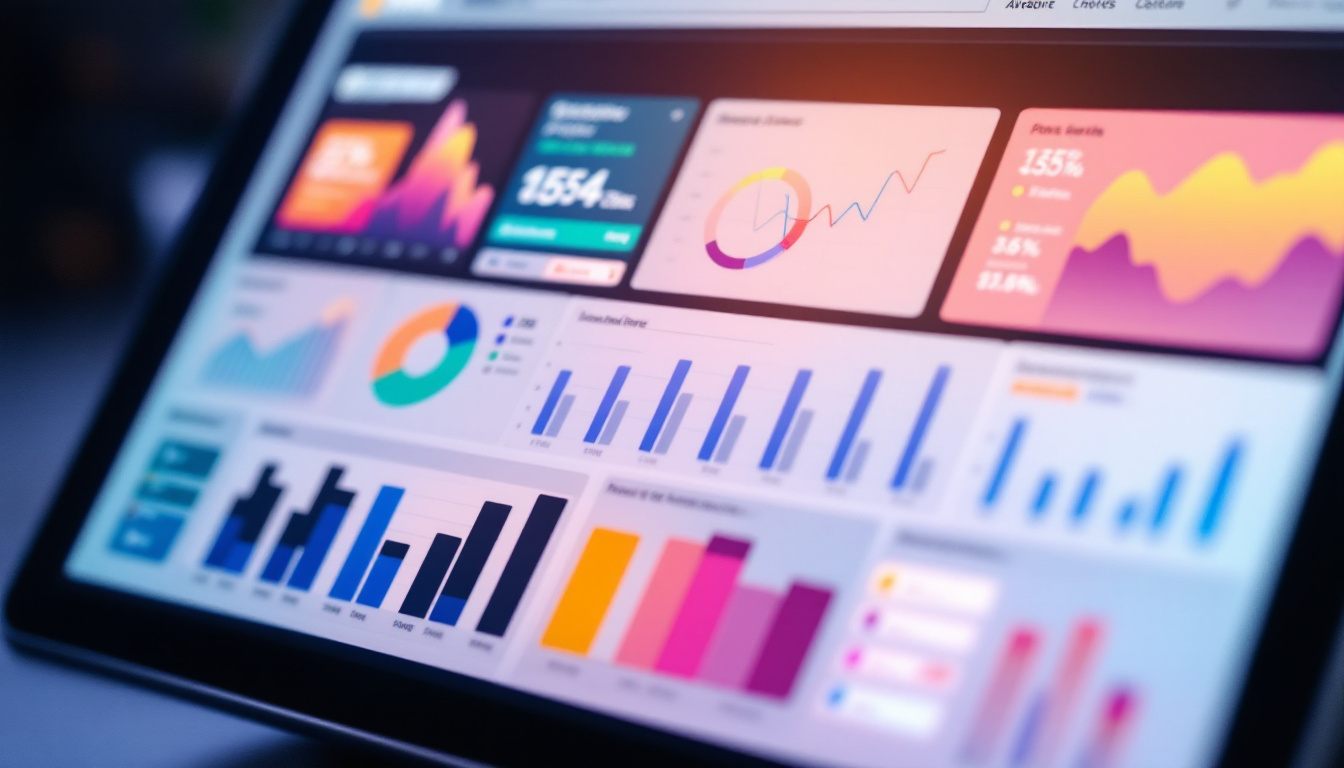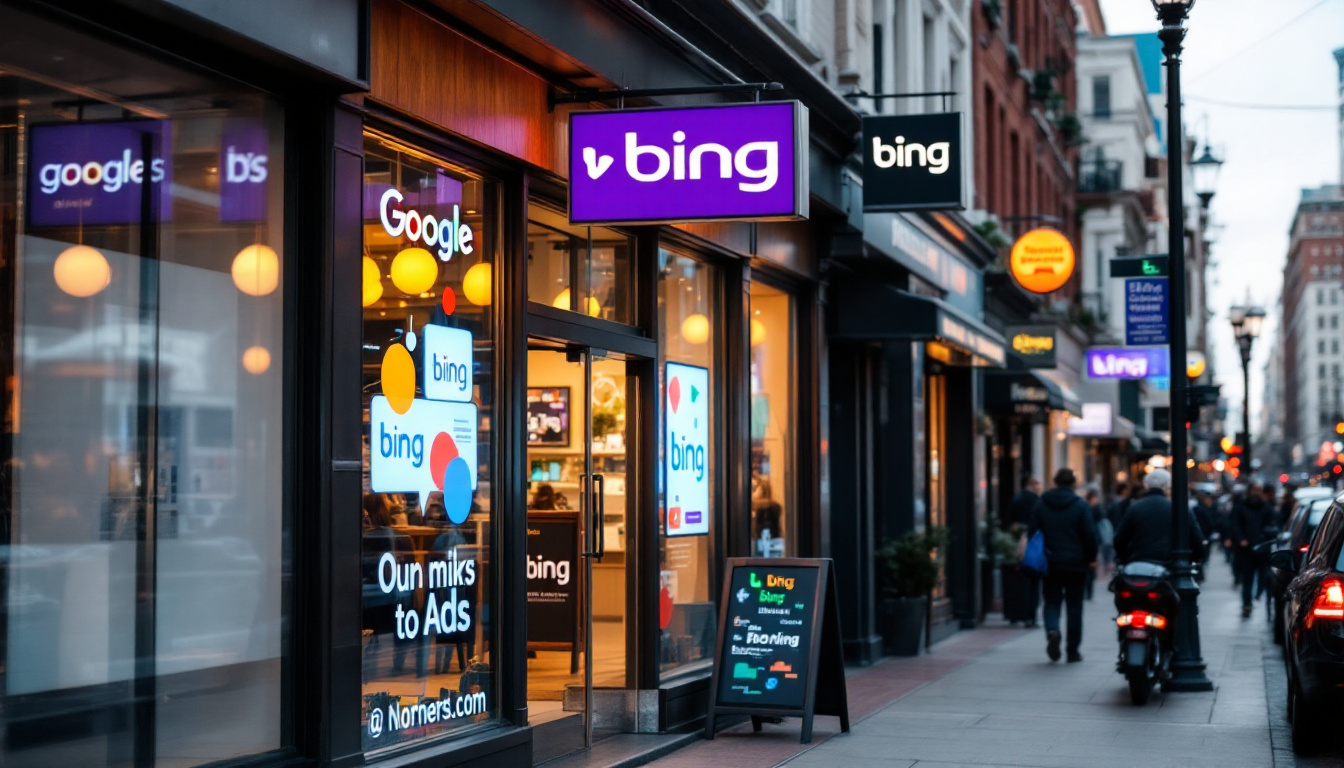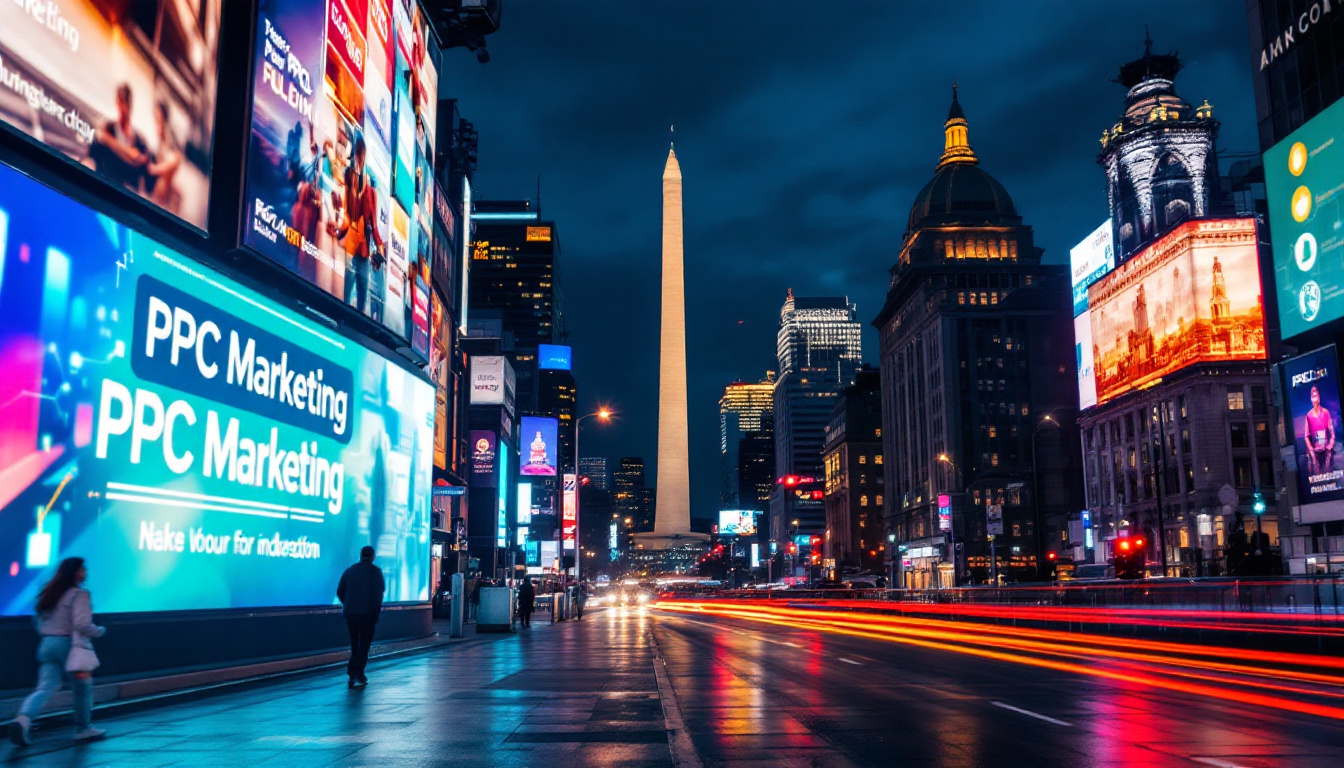Common Myths About PPC for Washington, DC Businesses

Pay-per-click (PPC) advertising has become an essential tool for many businesses in Washington, DC, looking to boost their online presence. However, several myths surrounding this advertising method can overshadow its effectiveness. In this article, we will explore the common misconceptions about PPC and reveal the truths that can help you leverage it to your advantage.
Debunking the 'PPC is too expensive' myth
One of the most prevalent myths associated with PPC is the belief that it is too expensive for businesses to use. Many small businesses, particularly in a market as competitive as Washington, DC, fear that they can't afford to participate in paid advertising.
The reality is that PPC can be tailored to fit any budget. With platforms like Google Ads and Bing Ads, advertisers can set daily budgets and bid amounts that align with their financial capabilities. In this sense, PPC offers flexibility that allows businesses to manage their advertising costs effectively.
Furthermore, when executed properly, PPC can yield a significant return on investment (ROI). By targeting specific audiences and using carefully crafted ads, businesses can drive relevant traffic to their websites, leading to increased sales and conversions over time.
In addition to budget flexibility, PPC campaigns can be adjusted in real-time based on performance metrics. This means that if a particular ad or keyword isn't performing well, businesses can quickly pivot their strategy, reallocating funds to more successful areas. This level of adaptability is crucial, especially in fast-paced markets where consumer behavior can shift rapidly. Moreover, the ability to track and analyze data allows businesses to refine their targeting and messaging, ensuring that every dollar spent is optimized for maximum impact.
Another often-overlooked advantage of PPC is its ability to complement organic search efforts. While SEO is a long-term strategy that can take time to yield results, PPC provides immediate visibility on search engines. This dual approach can amplify a business's online presence, making it more likely that potential customers will come across their offerings. By integrating both strategies, businesses can create a robust marketing plan that not only drives quick traffic but also builds a sustainable online footprint over time.
Why PPC is not just for big companies
Another common misconception is that PPC advertising is primarily for large corporations with hefty marketing budgets. Many small to mid-sized businesses in Washington, DC, mistakenly believe that PPC is out of their league.
This myth could not be further from the truth. PPC is accessible to businesses of all sizes. By utilizing demographic targeting, geographic targeting, and keyword selection, smaller companies can compete effectively against larger competitors. This level of customizability allows them to reach their ideal audience without overspending.
Additionally, successful case studies of small businesses that have implemented targeted PPC campaigns demonstrate that even limited budgets can produce impressive results. It's all about strategy and optimization.
For instance, a local coffee shop in Washington, DC, managed to increase its foot traffic by 40% within just a few months of launching a well-structured PPC campaign. By focusing on local keywords and utilizing geo-targeting, they were able to attract customers who were searching for coffee shops in their vicinity. This not only boosted their sales but also helped them build a loyal customer base that continues to support their business.
Moreover, the flexibility of PPC allows businesses to test various ad formats and messaging to see what resonates best with their audience. A small boutique, for example, might experiment with different promotional offers or seasonal campaigns, adjusting their strategy based on real-time performance data. This iterative approach not only enhances the effectiveness of their advertising but also ensures that they are making the most of their marketing budget, regardless of its size.
Understanding the role of analytics in PPC
Many business owners overlook the critical importance of analytics in PPC campaigns. Some may even believe that once an ad is launched, the work is done. This assumption leads to missed opportunities for improvement and wasted advertising spend.
Analytics play a vital role in measuring the effectiveness of PPC campaigns. By analyzing data on click-through rates (CTR), conversion rates, and the cost per acquisition (CPA), businesses can gain crucial insights into their advertising performance. These metrics provide valuable guidance on which strategies are working and what needs adjustment.
Moreover, tools like Google Analytics can help businesses understand user behavior once they click through to their website. This information can further refine PPC campaigns by optimizing ad copy, landing pages, and targeting criteria, ensuring that every advertising dollar spent is maximized.
In addition to these metrics, businesses should also consider the importance of A/B testing within their PPC strategies. By creating multiple versions of ads and landing pages, companies can determine which variations resonate best with their audience. This iterative process not only enhances engagement but also provides deeper insights into customer preferences, allowing for more tailored marketing efforts. Furthermore, leveraging demographic data can help businesses pinpoint their ideal customer segments, leading to more effective ad placements and improved ROI.
Another critical aspect of analytics in PPC is the ability to track and analyze competitor performance. By utilizing competitive analysis tools, businesses can gain insights into the strategies employed by their rivals, including keyword targeting and ad placements. Understanding what works for competitors can inform a company’s own PPC tactics, enabling them to stay ahead in the competitive landscape. This proactive approach to analytics not only fosters a culture of continuous improvement but also empowers businesses to make data-driven decisions that can significantly enhance their overall marketing effectiveness.
How PPC can provide immediate results
Some business owners believe that digital advertising is a long game and that they must wait weeks or months to see results. While it is true that some strategies, like SEO, take time to bear fruit, PPC offers a different advantage: immediacy.

Once a PPC campaign is launched, ads can start appearing in search results almost immediately. This instant visibility means that businesses can attract traffic, leads, and potential customers right away. In a bustling market like Washington, DC, this speed in gaining audience presence can be particularly advantageous.
Furthermore, with time-sensitive promotions or events, PPC can be an effective way to rapidly spread the word, driving immediate attention and engagement. For businesses looking to make quick impacts, PPC serves as a robust solution.
In addition to its speed, PPC allows for precise targeting, enabling businesses to reach specific demographics that are most likely to convert. Advertisers can tailor their campaigns based on factors such as location, interests, and even search behavior, ensuring that their ads are seen by the right people at the right time. This level of granularity not only enhances the effectiveness of the campaign but also maximizes the return on investment, as businesses can allocate their budgets towards the most promising audience segments.
Moreover, the ability to track and analyze PPC performance in real-time is another significant advantage. Advertisers can monitor key metrics such as click-through rates, conversion rates, and cost per acquisition almost instantly. This data-driven approach allows for quick adjustments to be made, optimizing ad spend and improving overall campaign effectiveness. As a result, businesses can make informed decisions that enhance their marketing strategies, ensuring that they stay competitive in a fast-paced digital landscape.
PPC vs. SEO: Which is better for your business?
A debate that often arises among marketers and business owners is whether to invest more in PPC or SEO. Some believe that PPC is superior due to its ability to generate fast results, while others advocate for the long-term benefits of SEO.

The truth is that both PPC and SEO have their distinct advantages, and the choice should depend on your business goals, timeline, and budget. PPC can produce quick returns and is ideal for short-term promotions and campaigns, whereas SEO is a long-term strategy that builds organic traffic over time.
Ultimately, a balanced approach combining both PPC and SEO can often yield the best results. Businesses in Washington, DC, can attract immediate visibility through PPC while also investing in SEO for sustainable growth. By understanding the strengths of both methods, business owners can tailor their marketing strategies to maximize performance across the board.
Moreover, the landscape of digital marketing is ever-evolving, and staying informed about the latest trends and technologies can significantly impact the effectiveness of your campaigns. For instance, advancements in machine learning and artificial intelligence are increasingly being integrated into PPC platforms, allowing for more precise targeting and improved ad performance. Similarly, SEO practices are constantly being refined, with search engines like Google frequently updating their algorithms to enhance user experience. This means that businesses must remain agile and adaptable, continuously optimizing their strategies to stay ahead of the competition.
In addition to understanding the technical aspects of PPC and SEO, it’s also essential to consider the customer journey. Today's consumers are more informed than ever, often conducting extensive research before making a purchase decision. This means that while PPC can capture immediate attention, SEO plays a crucial role in nurturing leads and building trust over time. By creating high-quality content that addresses customer pain points and questions, businesses can establish themselves as industry authorities, ultimately leading to higher conversion rates. Engaging with your audience through both paid and organic channels can create a comprehensive marketing ecosystem that drives results.
In conclusion, debunking these common myths about PPC can empower Washington, DC businesses to harness the full potential of online advertising. Understanding the true dynamics of PPC will enable companies of all sizes to craft effective campaigns, utilize analytics for continuous improvement, and leverage the immediate impact of pay-per-click marketing. Whether you're a small start-up or a well-established entity, integrating PPC into your marketing strategy can pave the way for growth and visibility in the competitive digital market.

As a Google Ads expert, I bring proven expertise in optimizing advertising campaigns to maximize ROI.
I specialize in sharing advanced strategies and targeted tips to refine Google Ads campaign management.
Committed to staying ahead of the latest trends and algorithms, I ensure that my clients receive cutting-edge solutions.
My passion for digital marketing and my ability to interpret data for strategic insights enable me to offer high-level consulting that aims to exceed expectations.









